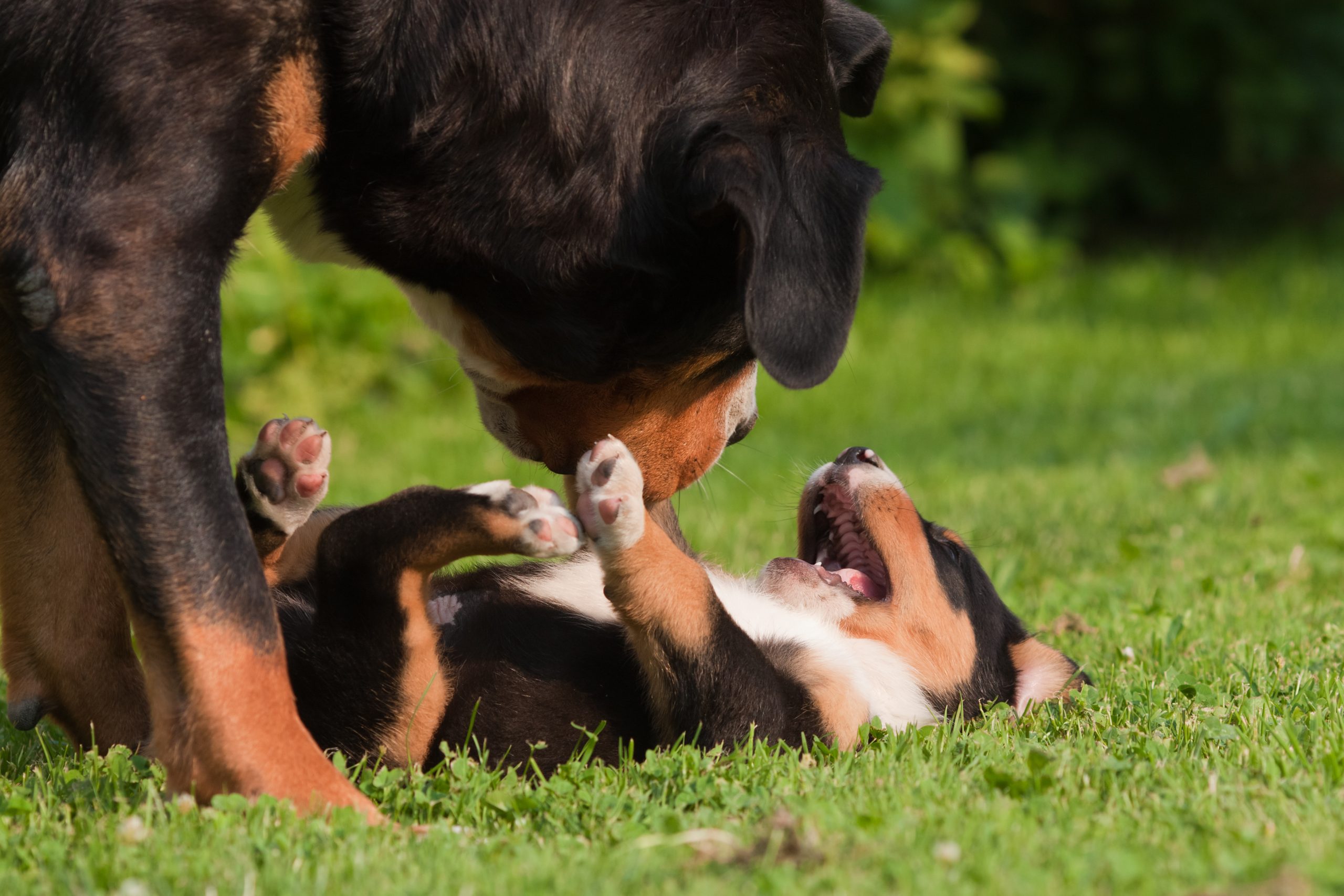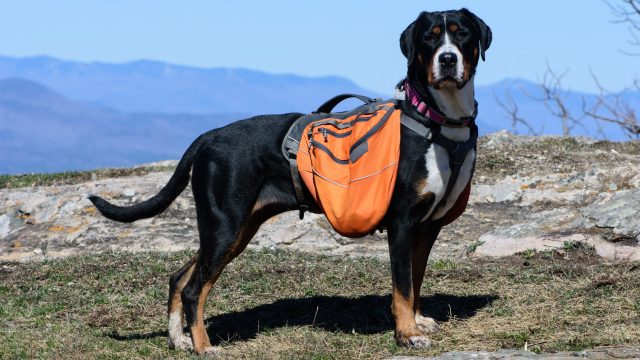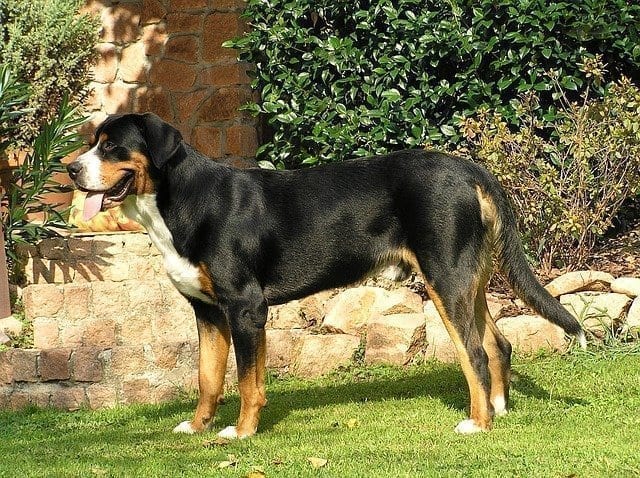Greater Swiss Mountain Dog
No products found which match your selection.
Shelter Dog Meal Donation Count:
No products found which match your selection.
The Greater Swiss Mountain Dog combines strength, loyalty, and gentleness, making it an excellent family pet for those with the space to accommodate its size. Their moderate to high intelligence and eagerness to please make them trainable, though their size and exercise needs should be considered. Their affectionate nature and protective instincts make them beloved members of the family, capable of both providing companionship and serving as vigilant guardians.
Originally bred in the Swiss Alps, the Greater Swiss Mountain Dog is known for its versatility as a working dog, excelling in herding, pulling, and guarding. They are strong and agile, capable of navigating rough terrain with ease.

The breed has a long history in Switzerland, where it was used as a draft dog, herder, and guardian. They are considered one of the oldest Swiss breeds and were instrumental in developing other Swiss breeds, including the Bernese Mountain Dog.




Prone to hip and elbow dysplasia, bloat, and eye problems. Regular health check-ups and screenings are important.
Moderate grooming needs; their coat requires regular brushing, especially during shedding seasons. Occasional baths, nail trimming, and ear cleaning are necessary.
Requires regular exercise; enjoys outdoor activities. Their moderate energy level makes them suitable for various types of families.
Intelligent and generally responsive to training. Consistency and positive reinforcement are key. Early socialization is crucial to ensure well-rounded behavior.
Requires a diet appropriate for a large breed with a moderate energy level. Monitoring food intake and meal routines is important to prevent bloat and maintain a healthy weight.
Caring for a Greater Swiss Mountain Dog involves meeting their exercise, training, and grooming needs. They thrive in environments where they can be part of family activities and have space to move. With proper care, including regular veterinary visits, suitable nutrition, and sufficient exercise, Greater Swiss Mountain Dogs make loyal and protective companions.
Greater Swiss Mountain Dogs, known for their strength and gentle temperament, are generally healthy, but like all large breeds, they are predisposed to certain health issues. Awareness of these conditions and the recommended tests can help maintain their well-being.
Understanding these common health issues and adhering to the recommended tests and preventive care guidelines can help ensure a long, healthy life for a Greater Swiss Mountain Dog. Collaboration with your veterinarian is key to developing a health care plan tailored to your dog's specific needs.
The iHeartDogs Free Rx Discount Card Program is a pet prescription discount card that can help you save money on your furry friend’s medications. The card is free to sign up for, and you can use it at participating pharmacies nationwide. To use the free program, simply show the card to your pharmacist when you pick up your pet’s prescription. The pharmacist will then scan the card, and you will receive a discount on the price of the medication.LEARN MORE
Caring for a Greater Swiss Mountain Dog, a large to giant breed, involves a range of expenses that can vary based on location, the dog’s age and health, and personal care choices. Here’s a breakdown of typical expenses:
Total Estimated Annual Cost:
$4650 - $13200
It's important to note that these figures are estimates and can vary. Also, the first year of owning a dog can be more expensive due to one-time costs like spaying/neutering, initial vaccinations, and training. Regular budgeting for your dog's needs and an emergency fund for unforeseen costs are essential for responsible pet ownership.